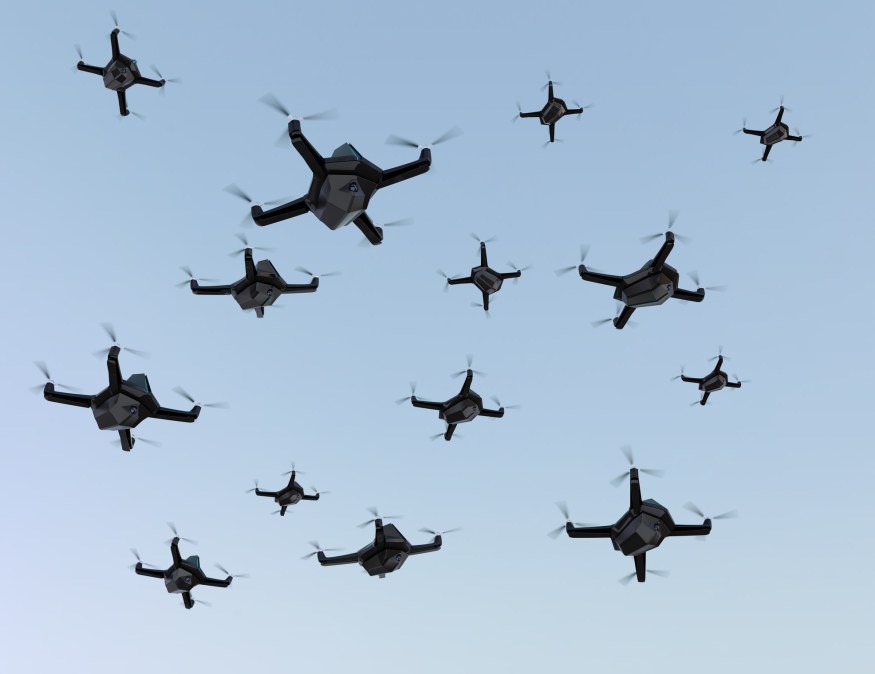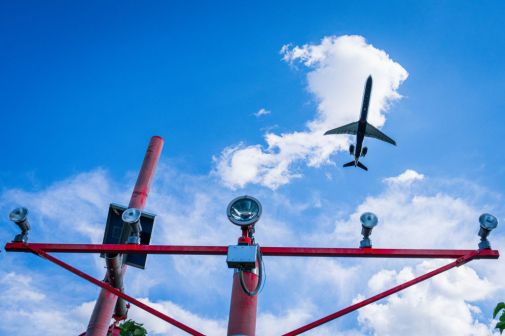Agencies excited about the potential for increased counter-drone authority for national security

The Department of Homeland Security and the FBI are really excited about the possibility of being able to seize control of, or otherwise disable, malicious drones in American airspace.
Representatives from both agencies, as well as the Federal Aviation Administration, spoke strongly in favor of new legislation that would grant the agencies these powers at a Senate hearing Wednesday. But while the room was friendly, the bill isn’t without its critics.
The Preventing Emerging Threats Act of 2018, introduced last month by Sen. Ron Johnson, R-Wisc., is a bipartisan bill that would “authorize personnel of the Department of Homeland Security or the Department of Justice” to take a number of actions to “mitigate the threat that an unmanned aircraft system or unmanned aircraft poses to the safety or security of a covered facility or asset” as defined by the DHS secretary or attorney general.
These actions include monitoring and tracking unmanned aircraft, warning the operator of said aircraft and, if necessary, advancing to “disrupt control” of the aircraft. The bill, as currently written, grants officials the option to “use reasonable force to disable, damage, or destroy” a threatening drone.
This is not a capability that DHS or DOJ officers currently possess. “We have no authorities to counter these drones,” Johnson said, in his opening remarks. He kicked off the hearing with a YouTube video that shows an Islamic State drone dropping a bomb on a target with impressive accuracy. “It looks like something out of our Defense Department,” Johnson said. “It’s frightening.”
In Johnson’s estimation, similar capacity could easily be used in a domestic terror attack. “We should thank our lucky stars that we haven’t seen a real tragic incident,” Johnson said.
Johnson and his colleagues want to get out in front of the threat by giving DHS and DOJ the authority to counter drones without fear of liability. And the agencies, unsurprisingly, are very much in support of this.
“The FBI is concerned that criminals and terrorists will exploit UAS in ways that pose a serious threat to the safety of the American people,” FBI Deputy Assistant Director Scott Brunner said in his testimony. “At present, the FBI and our federal partners have very limited authority to counter this new threat. Potential conflicts in federal criminal law limit the use of technologies that would enable the FBI to detect or, if necessary, to mitigate UAS that threaten critical facilities and assets. Absent legislative action, the FBI is unable to effectively protect the U.S. from this growing threat.”
The bill at hand, Brunner said, is a step in the right direction.
DHS Under Secretary for Intelligence and Analysis David J. Glawe echoed this sentiment. “This threat is real,” he said. And as drones get cheaper and more accessible, it will only be more important for security officials to have the authority to defend against the bad ones. “This bill is a very strong first step,” Glawe added.
Many of the authorities granted by the bill are similar to capabilities the Defense Department has to protect its own assets— the bill would translate these to the national security space.
The FAA also spoke in support of the legislation.
“The FAA supports our national security partners in DHS and the Department of Justice gaining this authority,” Deputy Associate Administrator for Security and Hazardous Materials Safety Angela Stubblefield said in her closing remarks. “There’s a lot to be learned about how to properly use it in the national airspace and in civil environments, and this authority will give us the opportunity to move further down that road.”
Despite the convivial atmosphere in the hearing room, the bill is not completely uncontroversial. There were several allusions to opposition from the American Civil Liberties Union during the course of the hearing — the group wrote a letter officially opposing the legislation on the grounds that it is too broad and lacks appropriate privacy protections.
“The bill amounts to an enormous unchecked grant of authority to the government to forcefully remove drones from the sky in nebulous security circumstances,” the letter reads.
Johnson called the contents of a letter “completely unjustifiable criticism,” saying the authorities the bill would grant are actually “minimal.”
The hearing Wednesday was a public version of a classified hearing held Tuesday — Johnson admitted he’s always wary of holding public hearings on national security topics because “I really don’t want to give the bad guys any ideas.”
The goal from here, Johnson said, is to get the Preventing Emerging Threats Act tacked onto the 2019 defense authorization bill. There’s currently no House version of the legislation.






